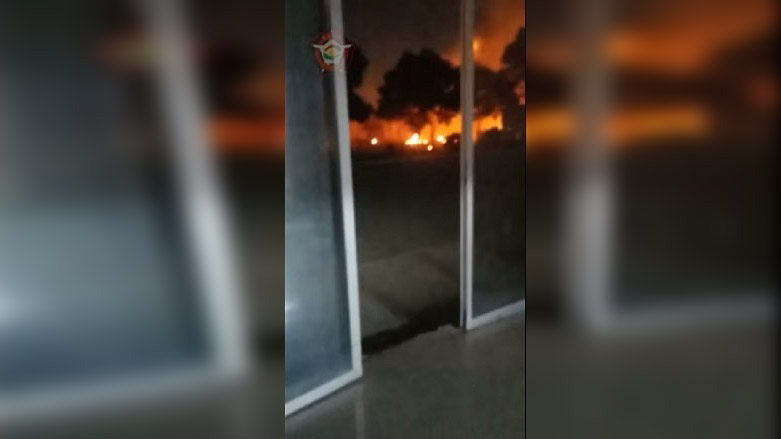Erbil International Airport targeted in drone attack: Kurdistan CT forces
The US-led Coalition said that one unmanned aircraft system "impacted in the vicinity of Erbil Air Base."

ERBIL (Kurdistan 24) – At least one explosive-laden drone landed near Erbil International Airport (EIA) in the Kurdistan Region capital late Tuesday, the region's Directorate General of Counter Terrorism (CTD) confirmed.
Shortly before confirming the drone attack, CTD also said there was a rocket attack on the airport. However, it was not clear if both methods were used to strike EIA.
The attack did not lead to any casualties or material damage, according to informed security and diplomatic sources.
The spokesman of the US-led coalition against ISIS, Col. Wayne Marotto, said that one unmanned aircraft system "impacted in the vicinity of Erbil Air Base."
The CTD, in a social media update, said the incident occurred around 10:30 p.m. and noted that the drones landed in a nearby field and started a brush fire. A video accompanied the social media post apparently showing the blaze.
Telegram channels supporting Iranian-backed Iraqi militia groups claimed that 20 rockets and three drones were used during the attack.
Coalition or Kurdish security forces have not confirmed this claim.
On June 26, three unmanned aerial vehicles carried out an attack on the autonomous Kurdistan Region of Iraq that was condemned by the United States Consulate General in Erbil, which called it "a clear violation of Iraq's sovereignty."
Related Article: Iraqi militias hold funeral for 4 members killed in US strike
In an apparent response to that attack, the US carried out a limited strike against three sites around the Iraqi-Syrian border manned by two PMF militias, known as Kata'ib Hizbollah and Kata'ib Sayyid al-Shuhada (KSS).
Read More: US launches limited airstrikes on Iran-backed militias in Iraq and Syria
According to a statement, the locations were used both for staging operations and transferring weaponry and drones. Four militia members died in the strike.
Iranian-backed groups earlier vowed revenge for the killed militiamen.
Abu Alaa al-Walai, the leader of the KSS, earlier told the Associated Press that "it will be a qualitative operation (that could come) from the air, the sea, along Iraq’s border, in the region or anywhere. It’s an open war."